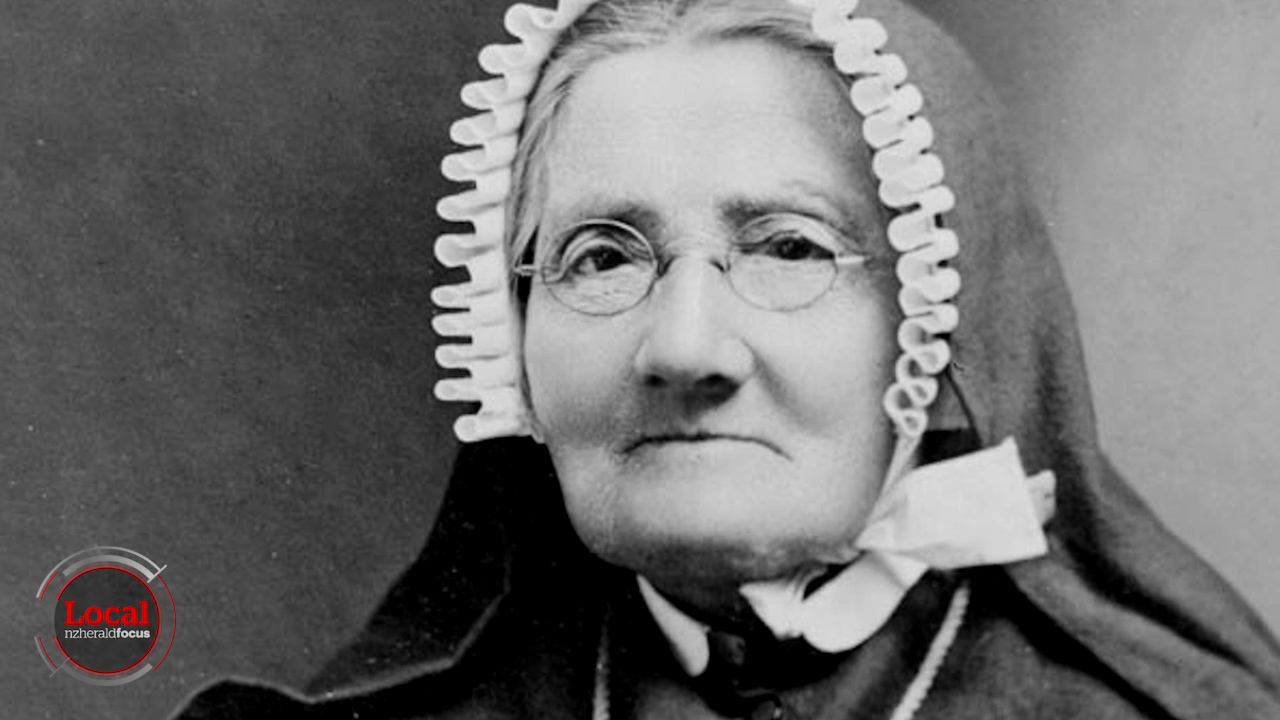The story of the Sisters of Compassion and their relationship with the Whanganui River stretches back more than a century.
Established in Whanganui's Jerusalem/Hiruharama in 1892, it became a highly respected religious order known for nursing and charitable works throughout Oceania.
Its founder, Mother Mary Joseph Suzanne Aubert, also known by her Māori name Meri Hohepa, died in 1926 and is in line to be canonised as a saint of the Roman Catholic Church.
If Aubert is recognised as a saint it is likely the Whanganui River Rd to Jerusalem, as the birthplace of the Sisters of Compassion, would become New Zealand's first pilgrim trail.
Aubert is credited as a pioneer of New Zealand's health and welfare system. Countless charitable works have grown from the tiny beginnings in Jerusalem.
Although not technically miracles, Aubert's ability to get major projects done was tremendous and her achievements many. As a public-welfare pioneer she built hospitals and training facilities.
Aubert also established the first creche, soup kitchens, homes for the disabled and unwell, as well as other enterprises for social welfare.
The sisters are declining in numbers but continue their compassionate work with community help.
Wellington-based Sister Sue Cosgrove first visited Jerusalem in 1968 and lived there permanently for 10 years from 2000.
"We Sisters of Compassion, we are an endangered species," she said. "But what is not endangered is compassion and we've got so many co-workers, friends of compassion, benefactors and volunteers particularly at the soup kitchen.
"We are only as good as we are today because of all these co-workers and companions along the way."
In France as a young woman, Aubert trained as a nurse while being privately educated in healthcare, chemistry and botany - skills she later used to care for the underprivileged in New Zealand.
And it was a Frenchman, Bishop Pompallier, who was the Bishop of New Zealand, who inspired Aubert to travel to the other side of the world. Pompallier spoke in the small French village where Aubert lived, looking for missionary recruits. Legend has it, from that moment, she knew she was going to the Antipodes.
"She came out without her parents knowing she was coming to New Zealand, on a whaling ship," Cosgrove said.

Mother Mary Joseph Suzanne Aubert founded The Sisters of Compassion at Whanganui's Jerusalem/Hiruharama in 1892.
"Her reason for coming was education for young Māori girls and Bishop Pompallier formed a little congregation of sisters and they had a boarding school for Māori girls.
"Bishop Pompallier eventually moved back to France, the New Zealand Catholic Church was in great debt and he had to downsize.
"The little order was disestablished and Aubert went to Hawke's Bay with the Marist priests as a third order."
Eventually Aubert travelled to Whanganui with two Josephite sisters, to resurrect a mission at the remote settlement of Jerusalem.
"She went by waka of course, up the Whanganui River," Cosgrove said. "Three days it took to get there.
"I don't know what happened but those sisters only stayed about 14 months. They helped re-establish the school, education was their focus, but they left."
As a laywoman unable to socialise or dine with the sisters, Aubert had formed strong bonds with the local woman but faced opposition from the Catholic Church which decided to disestablish the mission at Jerusalem.
So, Aubert went to Wellington to appeal the decision to Bishop Redwood.
"She was heartbroken that she'd need to leave and he said, 'No you won't, you will be my sisters and you are destined to compassionate the souls of all people. You will be called Daughters of Our Lady of Compassion'. So, we became a congregation."
Redwood appointed Aubert as Mother Superior of the newly established Daughters of Our Lady of Compassion.
Aubert was fluent in te reo Māori and learned about rongoā, traditional Māori medicine. She combined this knowledge with her medical training to make remedies renowned for their healing power. The sale of remedies supported the mission at Hiruharama.
"People were sending infants particularly, up for her to care for," Cosgrove said. "She just had a way with children and healing but some died and she didn't have the resources medically. So, she came to Wellington thinking that she would build a hospital for children."
Aubert did build hospitals. She was also a pioneer in preventative healthcare. In the late 1800s many men were out of work, hungry and destitute.
"Men were considered the breadwinners and of course, they were searching for work and going home with an empty belly, cross and angry and their wives got a hiding perhaps.
"So, she thought if the men had a full belly, at least they'd go home in a happier frame of mind. So, the soup kitchen was established 120 years ago this year."
Aubert went on to help support working mothers and those who had children with absent fathers.
"They were needing to give their kids away because they had no means of support and so she established the first creche in the country," Cosgrove said.
Aubert was very influential, arranging an audience with the Pope to organise finance for the hospitals.
Historian Sister Jo Gorman says Aubert had an amazing ability to be friends with everybody.
"She was friends with Governor-Generals, she was friends with politicians, she was friends with the ordinary people. It didn't matter who they were, she saw God in people."
By this stage, Aubert was a force to be reckoned with.
"There was a woman suffering from tuberculosis at a time when nothing very much was being done, so she went to the Ministry of Health and she was told to wait.
"She was kept waiting and waiting, so the secretary went into the minister's office and said 'Suzanne Aubert is here and she's getting angry'.
"Suzanne followed her into the office and she said 'Suzanne is not getting angry, she is angry. And if something is not done soon, I'm going to report it. I'm going straight to the Dominion Post to have it reported in the next day's edition'."
"So, something was done. That's when they started the TB hospital at the back of Wellington Hospital," Gorman said.
Wellington is now home for the religious order, with the headquarters in Island Bay, where Aubert is buried. A museum, cafe and shop are open to the public daily, and there are conference facilities and accommodation, with extensive gardens.
In Jerusalem, remnants of the cherry orchard and gardens planted by Aubert and the sisters still remain.
Jerusalem is also famous for the poetry and art that arrived with James K Baxter in 1969, when Cosgrove was a young sister at the mission.
"I found that very exciting at the time," she said. "I loved the Baxter poetry of Jerusalem that he wrote. I could relate to it so well."
The commune that sprang up around Baxter is another part of the rich history of Jerusalem.
The Whanganui mission at Hiruharama remains as a retreat, managed by the Sisters of Compassion in partnership with tangata whenua.
- by Georgie Ormond, NZ Herald
Take your Radio, Podcasts and Music with you









